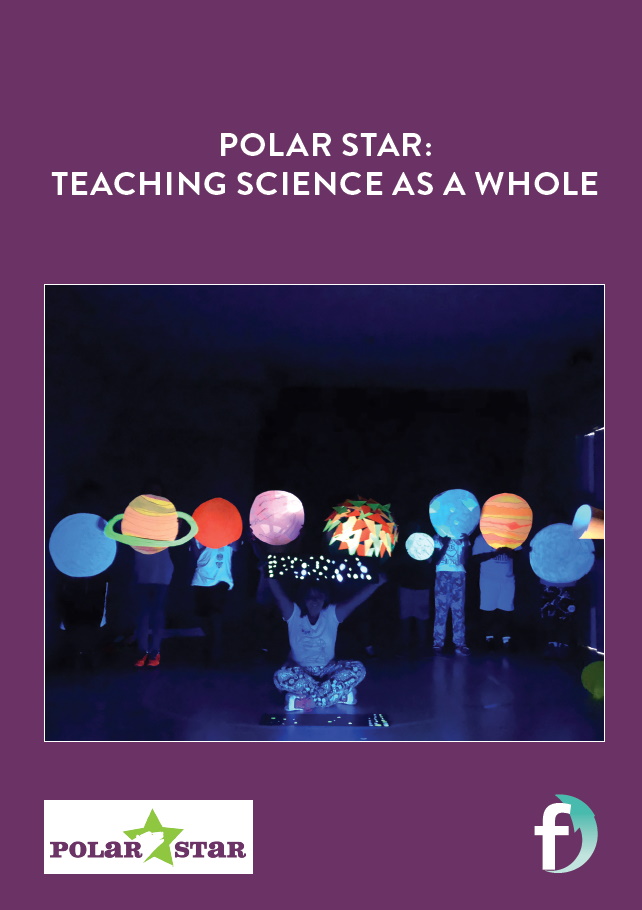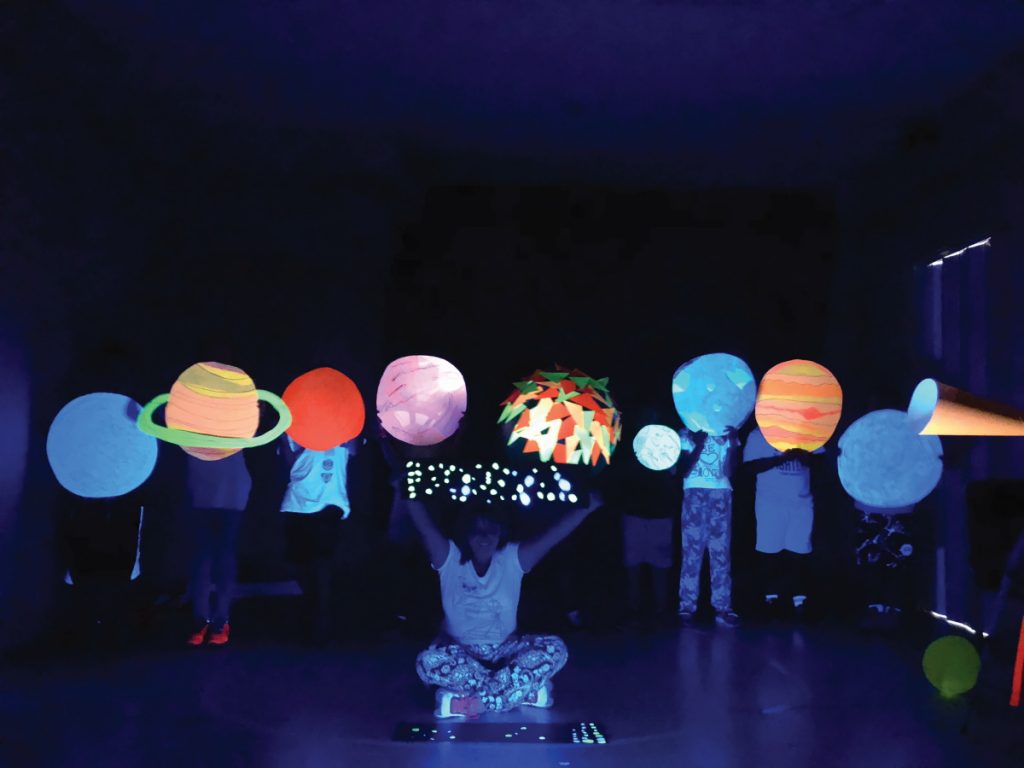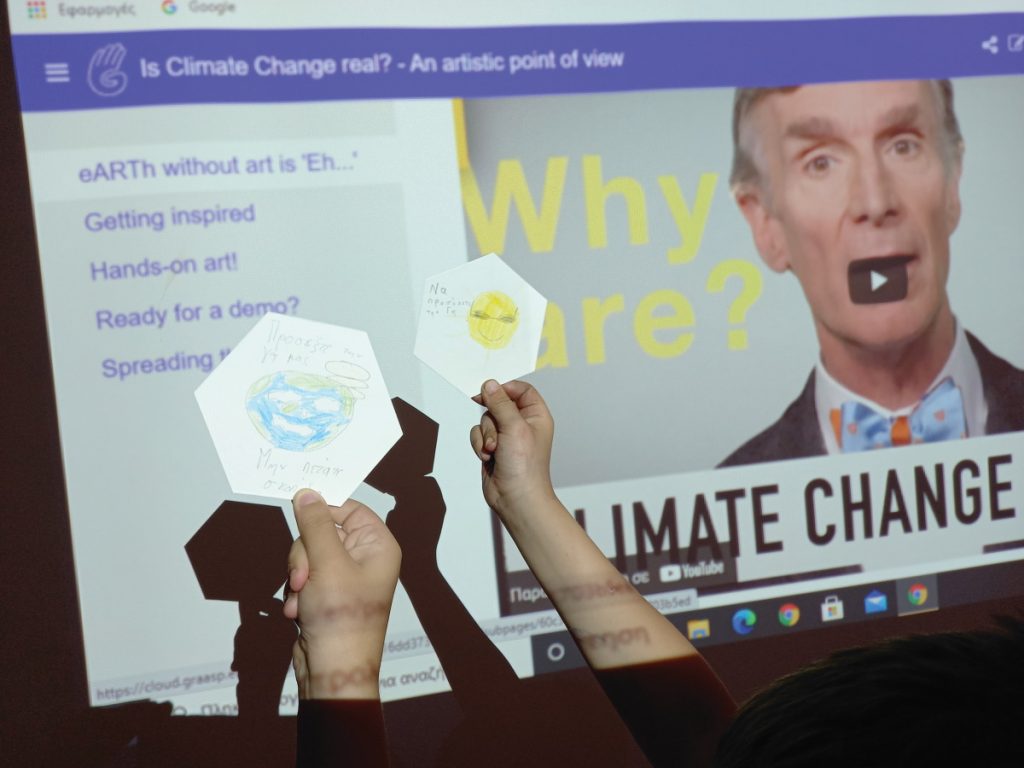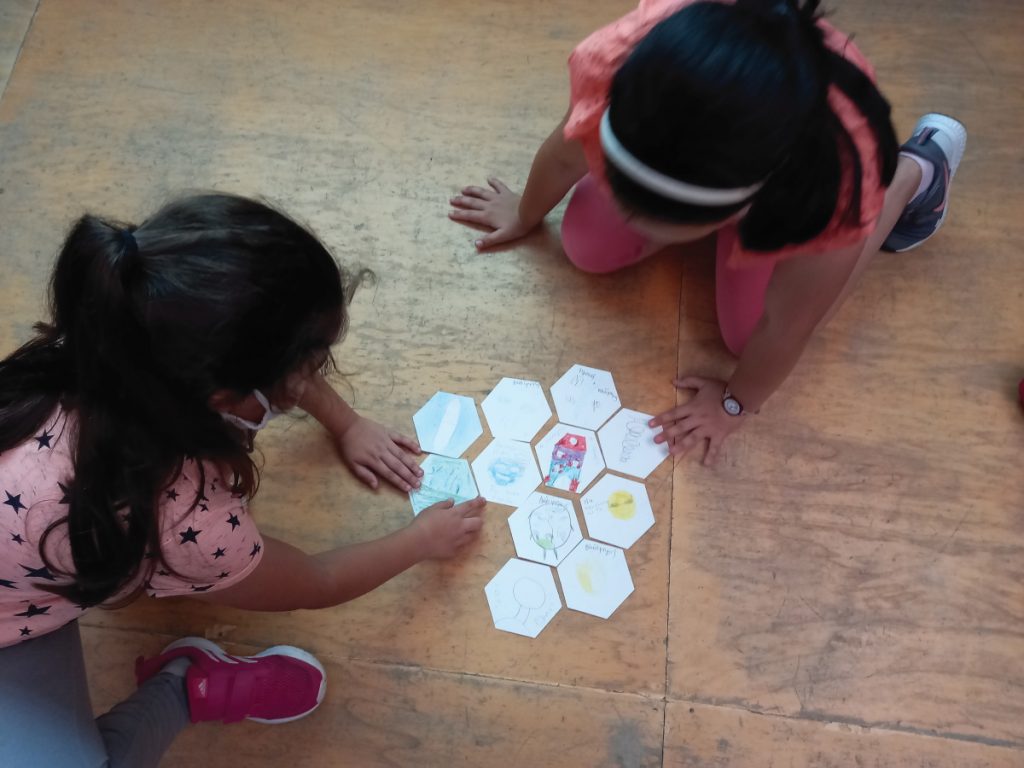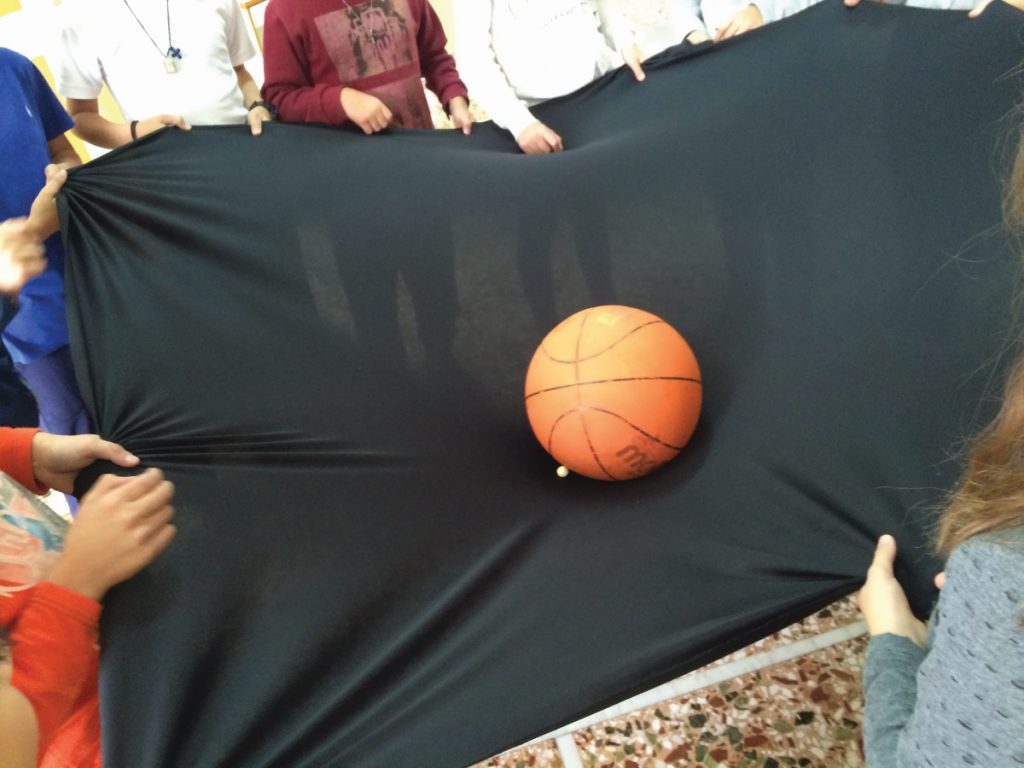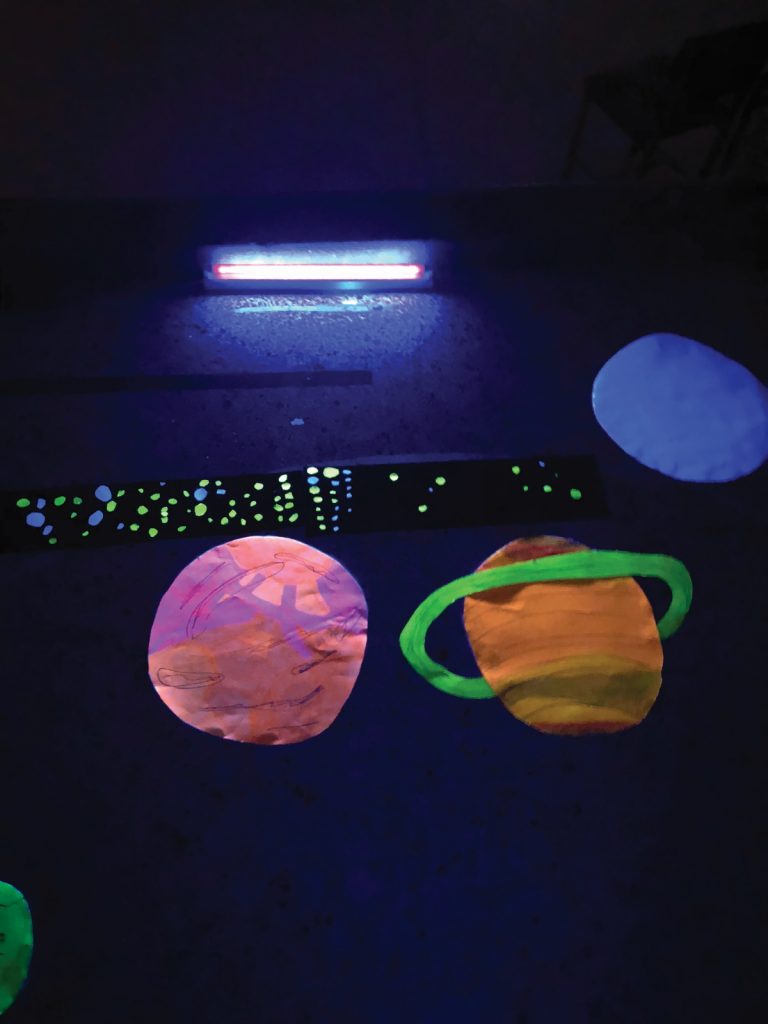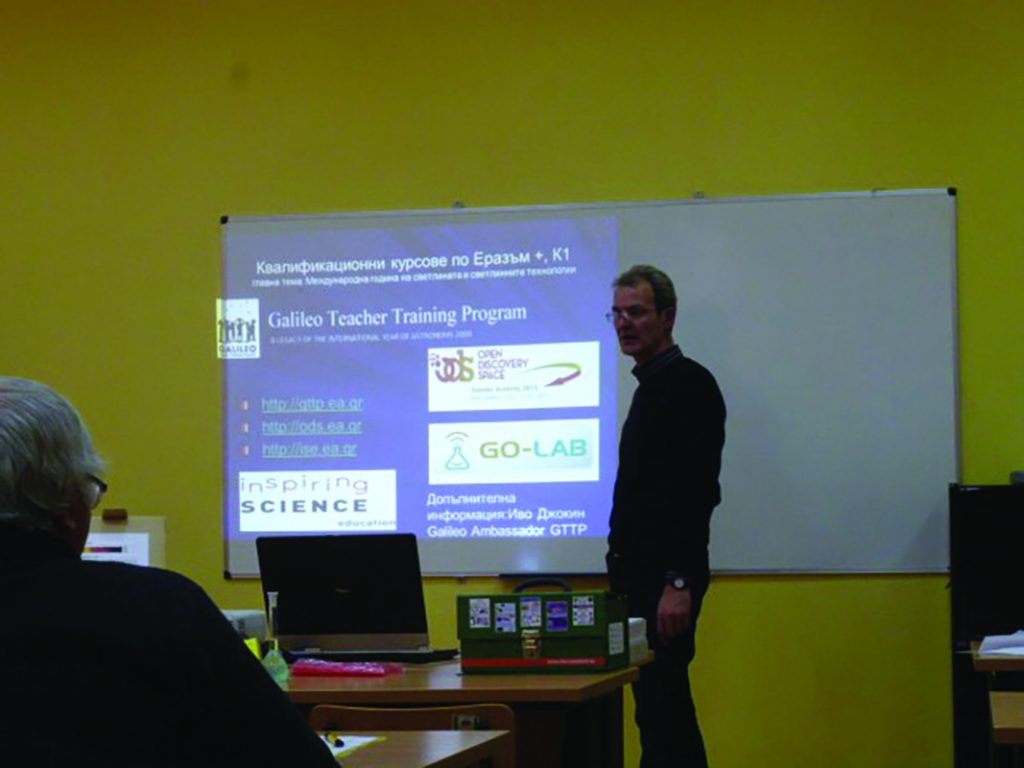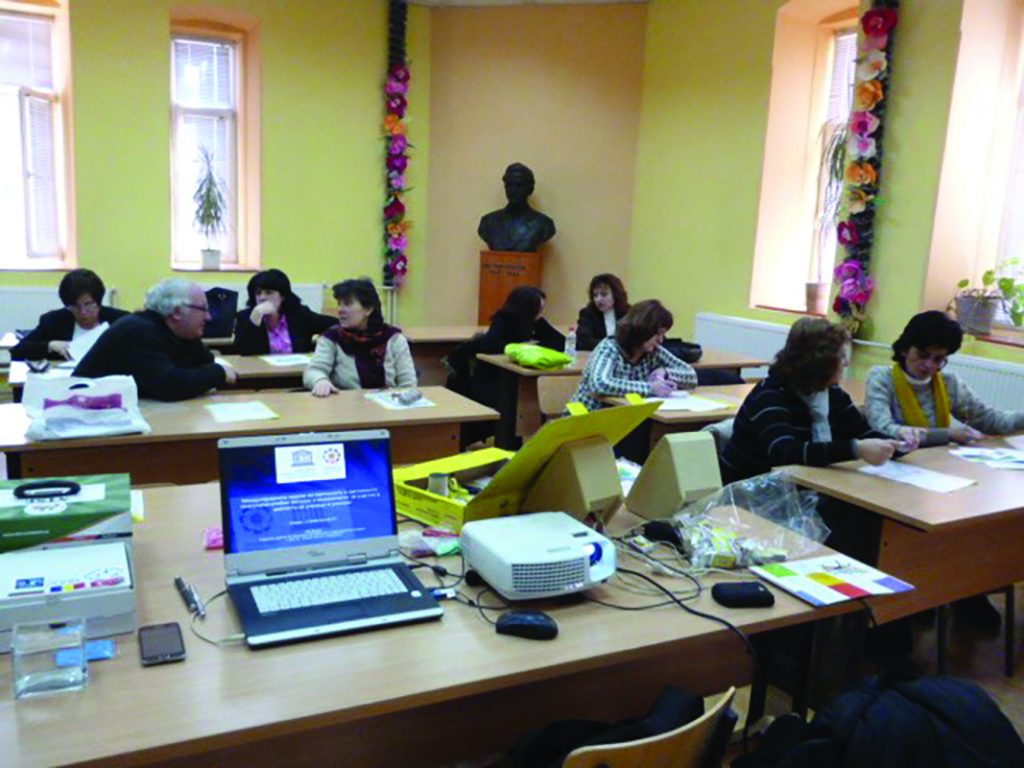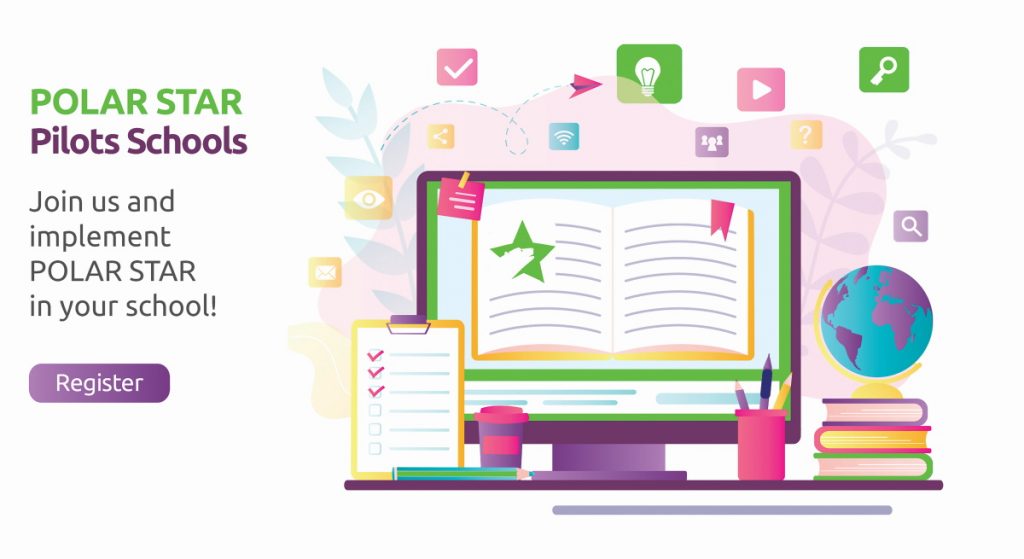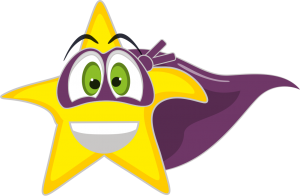POLAR STAR: Teaching science as a whole
The POLAR STAR project is designed to help teachers successfully introduce steam in their classes. It combines state-of-the-art pedagogies and exciting activities to teach ‘science as a whole’ and help teachers answer the “why do we have to learn this?” question
Imagine a world where your students never even consider asking why they need to learn something. A world where course materials and methodology imbue each student with a genuine understanding of why they are learning what they are learning and a real desire to learn more. To some, this might sound like a teaching utopia that exists beyond the realm of reality. Despite teachers’ efforts, teaching and learning can be confined to a prescriptive curriculum and exam or assessment content, and the “Why do we have to learn this?” question becomes increasingly difficult to answer.
The POLAR STAR project is designed to help teachers by providing the methodology and tools to enable them to answer student questions effectively. The central methodology behind the project is to help teachers reorientate their teaching and work within a student-centred interdisciplinary framework, one that focuses on students’ interests and helps them make tangible links between what is taught in schools and everyday life. POLAR STAR enables teachers to collaborate, innovate and facilitate personalised and active learning.
POLAR STAR’S MOTIVATION
In most countries, school science education follows a format in which science disciplines are fully separate. This compartmentalised approach may serve certain needs, but it can deprive students of the opportunity to understand that all science disciplines are connected and are about one and the same thing – our world. The team behind POLAR STAR wants to offer teachers an advanced cross-disciplinary methodology that goes beyond the traditional organisation of science curricula and allows teachers and students to make connections between science disciplines, discover underlying connections between phenomena and work on transdisciplinary projects in which the added value of each concept is highlighted.
To achieve this, the team has created a holistic approach that deals with the content taught in classrooms, as well as the way in which this content is taught to students. This has resulted in the creation of a set of core interdisciplinary fundamental concepts as a reference system which students can keep coming back to every time they learn something new. This reference system can facilitate the consolidation of new knowledge and make it more permanent by explicitly connecting it to past knowledge already built around that set of core concepts.
A ‘CURRICULUM-PROOF’ METHODOLOGY
The methodology is divided into two main strands. The ‘Science as a whole’ strand focuses on the content, i.e. what is taught, while the ‘STEAM education’ strand focuses on how science is taught to students. The ‘curriculum-proof’ aspect comes from the fact that the project encompasses all the basic science ideas that students are taught over their school years, but is organised in an interdisciplinary way – the backbone structure is immune to curriculum changes and can be used with students of all ages and in schools of countries with different approaches to science education.
CORE IDEAS
All of us, to varying extents, have experienced the phenomena of forgetting much of what we learned in school, with only a few scattered pieces of information being retained. A key question is, “When all other knowledge fades away, what are the very basic science concepts every educated person should know about?” It is a question that the POLAR STAR team seeks to answer through the methodology it has developed. Ultimately, the idea is to replace the scattered pieces of information with a set of core science concepts – the ‘Big Ideas of Science’ – that help explain the world around us.
The team began working on the ‘Big Ideas of Science’ back in 2014, when it looked at the report, ‘Principles and Big Ideas of Science Education’, edited by Wynne Harlen in 2010. The team reviewed several similar sets of core ideas of science or separate science disciplines and, based on that review, developed its own set. Next, it conducted 19 workshops in different European countries, engaging 352 teachers in total to review and validate the set. It also asked 18 stakeholders (curriculum developers, academics, heads of teacher training centres and others) from 18 different countries around the world to review the set. POLAR STAR’s final concept of ‘Big Ideas for Science’ is the end product of an amazing collaboration.
The Big Ideas give students the key knowledge they need, and how these ideas are communicated in class is informed through the methodology. POLAR STAR’s methodology offers tools and materials that allow teachers to deploy a transdisciplinary STEAM approach that develops students’ 21st century skills, increases knowledge retention and boosts students’ appreciation of science.
KNOWLEDGE FOR LIFE
Increasing knowledge retention is a key part of the team’s methodology. It offers tools and guidance to teachers to increase knowledge retention by a) focusing on keeping the bigger picture in mind, b) presenting each concept within different contexts, c) making interdisciplinary connections to other science concepts and d) personalised learning. In the training workshops, the team presents the rationale of the methodology in detail and fully trains teachers to use it in class by deploying simple tools and techniques.
THE NEXT STEPS
POLAR STAR has 18 more months to go and from now until then, the team is focusing on training teachers and doing in-class implementation. The team currently designs innovative activities of in-class implementation around Arctic Research (POLAR kit) and Space Exploration (STAR kit) aiming to bring the project’s methodology in schools through contemporary science achievements and topics that are appealing to all students. Due to the pandemic, the team has decided to run its 2021 summer school for teachers online. The summer school will run from 5th to 9th July 2021 and the team is offering an open invitation to all teachers to participate.
Looking ahead, there are also plans for smaller events in the participating countries, as well as further online training courses for teachers who are unable to attend future face-to-face workshops.
This truly is an exciting project and one that could revolutionise how STEAM is taught to students around the world. The benefits of achieving that will extend far beyond the students and teachers – it will improve many areas of life across the four corners of the globe.
MEET MEMBERS OF THE POLAR STAR COMMUNITY

NAME: IOANNA KASAMPA
ROLE: PRIMARY SCHOOL TEACHER
SCHOOL/ESTABLISHMENT: 2ND PRIMARY SCHOOL OF CHIOS
SUBJECTS: MATHS, PHYSICS, GREEK LANGUAGE
TEACHING AGE RANGE: 9-12 YEARS OLD
Our collaboration with POLAR STAR is great! I have worked with the POLAR STAR team on many projects in the past, such as SPACE AWARENESS, GO-LAB and ISLANDS DIVERSITY, which has helped us work across many different types of methodology and concepts based on science and STEAM philosophy. I really do enjoy being part of this wonderful team!
There have been so many amazing workshops in the past that highlighting one memorable moment above any other seems unfair! The recent covid-19 pandemic issues have brought into sharp focus just how enjoyable the collaborations have been and no doubt will be again in the future.
Reference
https://doi.org/10.33424/FUTURUM157
The POLAR STAR project is designed to help teachers by providing the methodology and tools to enable them to answer student questions effectively. The central methodology behind the project is to help teachers reorientate their teaching and work within a student-centred interdisciplinary framework, one that focuses on students’ interests and helps them make tangible links between what is taught in schools and everyday life. POLAR STAR enables teachers to collaborate, innovate and facilitate personalised and active learning.
POLAR STAR’S MOTIVATION
In most countries, school science education follows a format in which science disciplines are fully separate. This compartmentalised approach may serve certain needs, but it can deprive students of the opportunity to understand that all science disciplines are connected and are about one and the same thing – our world. The team behind POLAR STAR wants to offer teachers an advanced cross-disciplinary methodology that goes beyond the traditional organisation of science curricula and allows teachers and students to make connections between science disciplines, discover underlying connections between phenomena and work on transdisciplinary projects in which the added value of each concept is highlighted.
To achieve this, the team has created a holistic approach that deals with the content taught in classrooms, as well as the way in which this content is taught to students. This has resulted in the creation of a set of core interdisciplinary fundamental concepts as a reference system which students can keep coming back to every time they learn something new. This reference system can facilitate the consolidation of new knowledge and make it more permanent by explicitly connecting it to past knowledge already built around that set of core concepts.
A ‘CURRICULUM-PROOF’ METHODOLOGY
The methodology is divided into two main strands. The ‘Science as a whole’ strand focuses on the content, i.e. what is taught, while the ‘STEAM education’ strand focuses on how science is taught to students. The ‘curriculum-proof’ aspect comes from the fact that the project encompasses all the basic science ideas that students are taught over their school years, but is organised in an interdisciplinary way – the backbone structure is immune to curriculum changes and can be used with students of all ages and in schools of countries with different approaches to science education.
CORE IDEAS
All of us, to varying extents, have experienced the phenomena of forgetting much of what we learned in school, with only a few scattered pieces of information being retained. A key question is, “When all other knowledge fades away, what are the very basic science concepts every educated person should know about?” It is a question that the POLAR STAR team seeks to answer through the methodology it has developed. Ultimately, the idea is to replace the scattered pieces of information with a set of core science concepts – the ‘Big Ideas of Science’ – that help explain the world around us.
The team began working on the ‘Big Ideas of Science’ back in 2014, when it looked at the report, ‘Principles and Big Ideas of Science Education’, edited by Wynne Harlen in 2010. The team reviewed several similar sets of core ideas of science or separate science disciplines and, based on that review, developed its own set. Next, it conducted 19 workshops in different European countries, engaging 352 teachers in total to review and validate the set. It also asked 18 stakeholders (curriculum developers, academics, heads of teacher training centres and others) from 18 different countries around the world to review the set. POLAR STAR’s final concept of ‘Big Ideas for Science’ is the end product of an amazing collaboration.
The Big Ideas give students the key knowledge they need, and how these ideas are communicated in class is informed through the methodology. POLAR STAR’s methodology offers tools and materials that allow teachers to deploy a transdisciplinary STEAM approach that develops students’ 21st century skills, increases knowledge retention and boosts students’ appreciation of science.
KNOWLEDGE FOR LIFE
Increasing knowledge retention is a key part of the team’s methodology. It offers tools and guidance to teachers to increase knowledge retention by a) focusing on keeping the bigger picture in mind, b) presenting each concept within different contexts, c) making interdisciplinary connections to other science concepts and d) personalised learning. In the training workshops, the team presents the rationale of the methodology in detail and fully trains teachers to use it in class by deploying simple tools and techniques.
THE NEXT STEPS
POLAR STAR has 18 more months to go and from now until then, the team is focusing on training teachers and doing in-class implementation. The team currently designs innovative activities of in-class implementation around Arctic Research (POLAR kit) and Space Exploration (STAR kit) aiming to bring the project’s methodology in schools through contemporary science achievements and topics that are appealing to all students. Due to the pandemic, the team has decided to run its 2021 summer school for teachers online. The summer school will run from 5th to 9th July 2021 and the team is offering an open invitation to all teachers to participate.
Looking ahead, there are also plans for smaller events in the participating countries, as well as further online training courses for teachers who are unable to attend future face-to-face workshops.
This truly is an exciting project and one that could revolutionise how STEAM is taught to students around the world. The benefits of achieving that will extend far beyond the students and teachers – it will improve many areas of life across the four corners of the globe.
MEET MEMBERS OF THE POLAR STAR COMMUNITY

NAME: IOANNA KASAMPA
ROLE: PRIMARY SCHOOL TEACHER
SCHOOL/ESTABLISHMENT: 2ND PRIMARY SCHOOL OF CHIOS
SUBJECTS: MATHS, PHYSICS, GREEK LANGUAGE
TEACHING AGE RANGE: 9-12 YEARS OLD
Our collaboration with POLAR STAR is great! I have worked with the POLAR STAR team on many projects in the past, such as SPACE AWARENESS, GO-LAB and ISLANDS DIVERSITY, which has helped us work across many different types of methodology and concepts based on science and STEAM philosophy. I really do enjoy being part of this wonderful team!
There have been so many amazing workshops in the past that highlighting one memorable moment above any other seems unfair! The recent covid-19 pandemic issues have brought into sharp focus just how enjoyable the collaborations have been and no doubt will be again in the future.
I really enjoy learning new things and methods – but the greatest part of these projects is that we have been working together for years, so we are a bonded team that tries to give our best to contribute to the development of the projects. My participation in these projects always provides me with great experience, in and out of class, and gives me innovative knowledge that is extremely useful in my profession.
I like the teaching approach of the project that combines innovative learning techniques, like inquiry learning and the design thinking approach, which is very helpful for students to develop strong skills for their future life. The most exciting part is that in the POLAR STAR methodology we study ‘Science as a whole’, but, at the same time, we personalise the teaching and learning experience to meet each student’s needs.
Of course, the application of the POLAR STAR methodology in class provides students with many learning opportunities, but I think that the most crucial aspect is approaching science in a joyful way that fosters a love of science in the students. As far as the concepts are concerned, they are very interesting, because astronomy and space exploration have always been breath-taking subjects and a rich source of excitement.
I would definitely encourage other teachers to participate in POLAR STAR. I would tell them to be open to new horizons in education – the implementation of the POLAR STAR project will give them and their students a wonderful experience!
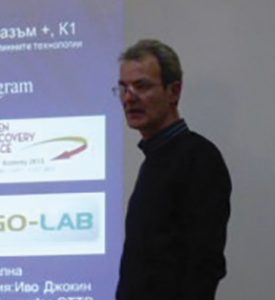
NAME: IVO JOKIN
ROLE: DIRECTOR AND STEAM TEACHER
SCHOOL/ESTABLISHMENT: MUNICIPAL CENTER FOR EXTRACURRICULAR ACTIVITIES, SOFIA, BULGARIA
SUBJECTS: STEAM
TEACHING AGE RANGE: 10-18 YEARS OLD
I got involved in the POLAR STAR Advisors team, Star Kit. I am the organiser of the National Astro Party, which is included in the National Calendar for extracurricular activities of the Ministry of Education and Science. In 2020, because of the coronavirus pandemic, it was held online with over 220 teachers and students. I presented in the official programme of the POLAR STAR project. In February 2014, together with the Regional Department of Education Pleven, Ms Katya Trifonova, who is a Senior Science Expert, a seminar was held with 28 science teachers from Pleven where I introduced colleagues to the objectives of the project and the work of some of the online laboratories. I also presented the project activities at the 42nd National Conference on Physics Education, September 8-11 in Stara Zagora.
What has been a memorable moment for me? A module is included in the educational programme of the Municipal Center for Extracurricular Activities called GO-LAB, which uses ‘Guidelines for design of Go- Lab inquiry Learning Spaces’ – that was a particular highlight.
What I find most rewarding and enjoyable about POLAR STAR is the opportunity to learn new, modern and innovative approaches and methods of teaching science.
The POLAR STAR approach which embraces science as a whole, with a focus on personalised, student-centred learning, is very appealing to me. I work in the field of non-formal education, so I find this aspect crucial to my teaching – I will be including it in modular curriculum activities, for sure.
Directing the educational process to the students themselves – placing them in the role of young researchers by provoking their curiosity and development of cognitive interest – is an essential need that POLAR STAR allows me to meet. The project also facilitates the change from a teacher as a leader to a teacher-mentor, which is really valuable.
The POLAR STAR methodology presupposes an interdisciplinary approach. The proposed concept and methodology of the project – ‘Science as a whole’ – encourages the participation of teachers from different subjects so that students can acquire a complete and comprehensive picture of the world around us. That can only foster improved collaboration.
I believe that research-based learning is very important and through the resources and methodology of the POLAR STAR project, I will develop my competencies in this area further.
I would be happy to invite other teachers to participate in POLAR STAR! I think that working with geography teachers (who can be neglected in STEM projects), for example, will prove very successful and useful.
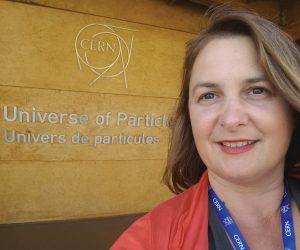
NAME: MARINA MOLLA
ROLE: HEADMISTRESS
SCHOOL/ESTABLISHMENT: 9TH PRIMARY SCHOOL OF KOMOTINI, GREECE
SUBJECTS: PRIMARY SCHOOL CURRICULUM
TEACHING AGE RANGE: 6-11 YEARS OLD
If I had to choose a memorable moment of collaborating with the team, it would be the POLAR STAR Summer School, for three reasons. Firstly, we had the time to interact with each other and further discuss the POLAR STAR approach. Secondly, I had the honour of being one of the speakers – my presentation was about how I have been teaching interdisciplinarity with the Big Ideas of Science and the feedback I got from the POLAR STAR team and participants was very positive and useful. Thirdly, I implemented the activities we were asked to do during the workshop with my children and their friends and they were enthused by them.
The biggest reward of participating in innovative projects like POLAR STAR for me lies in the eyes of my students. After implementing school projects and activities that follow a fully developed modern and effective didactic methodology and philosophy like PLATON (one of the team’s previous projects) and POLAR STAR, you can see curiosity, excitement and motivation glow in their eyes.
Every single POLAR STAR element is exciting, useful and effective, but my goal will be to combine all of them, to implement ‘Science as a whole’.
Recently, I became the headmistress of my school, the 9th Primary School of Komotini, Greece. My school is a multicultural and multilingual school. Many of our students come from vulnerable social groups. We face inadequate school attendance and school dropout. We need to attract our students back to school and, at the same time, enhance their self-esteem and personalise their learning. Teaching with the POLAR STAR approach and kit will intrigue and engage our students and help them ‘learn how to learn’ by making connections and using their memories, stories and experiences. Thus, we will innovate our school and make a difference to the students’ lives.
If, like me, you have come across students who don’t remember concepts they have been taught recently, then POLAR STAR is your answer and this is its biggest added value. Teaching with the POLAR STAR approach will help your students make connections. They will connect what they learn at school with their everyday life and this will make their learning more meaningful.
The biggest challenge is to leave your comfort zone and decide to innovate your classroom. Once you have made that decision, the POLAR STAR approach offers you a fully developed, detailed, useful and effective teaching approach that comes with teaching and learning materials which you can use easily in your daily teaching practice. The POLAR STAR team will always be there to support you. Let’s grow the POLAR STAR community!
THE POLAR STAR TEAM
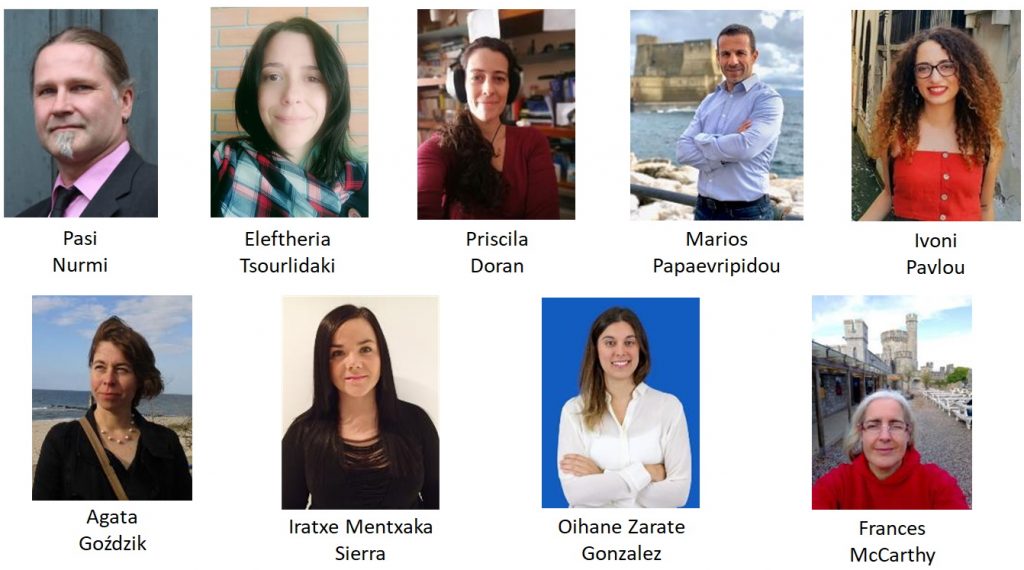
The POLAR STAR team is composed of several teachers, educators, researchers and advisors who all have a passion for helping people teach science as a whole. Each participant has their own role within the project, although collaboration between and across departments and functions is essential to the success of the wider team.
Pasi Nurmi: Project Coordinator, in charge of producing the roadmap of the project
Eleftheria Tsourlidaki: ‘Science as a whole’
Yvoni Pavlou and Marios Papaevripidou: ‘STEAM Education’
Iratxe Menchaca Sierra and Oihane Zarate González: Assessment toolkit
Agata Gozdzik: POLAR kit of activities
Frances McCarthy: STAR kit of activities
Priscila Doran and Rosa Doran: Pilot implementation
POLAR STAR is co-funded by the Erasmus+ Programme of the European Union (Grant Agreement N. 2019-1-FI01-KA201-060780). The European Commission’s support for the production of this publication does not constitute an endorsement of the contents, which reflect the views only of the authors, and the Commission cannot be held responsible for any use which may be made of the information contained therein.
Do you have a question for the POLAR STAR team?
Write it in the comments box below and the POLAR STAR team team will get back to you. (Remember, researchers are very busy people, so you may have to wait a few days.)

